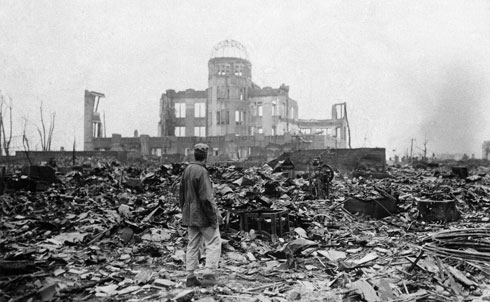
Since the detonation of the first atomic bombs over the Japanese cities of Hiroshima and Nagasaki in August of 1945, The Nation has been appropriately fearful of the singular devastation that nuclear weapons can wreak upon the earth and equally skeptical of the promises of nuclear energy offers on the homefront. In 1945, editor Freda Kirchwey, while allowing that the bombs did indeed end World War II, argued that if the assumptions made in deciding to bomb Japan were repeated in the future, "the chance of saving civilization—and perhaps the world itself—from destruction is a remote one." More than fifty years later, Jonathan Schell, the premier nuclear writer of his generation, echoed many of Kirchwey’s contentions in a seminal opus, "The Gift of Time," making the case for nuclear abolition, a position that the magazine holds proudly to this day.
In commemoration of the victims of the atomic bombings of the Japanese cities of Hiroshima and Nagasaki sixty-five years ago this month we’ve assembled a series of related articles and photos from The Nation’s archives.
Credit: AP Images
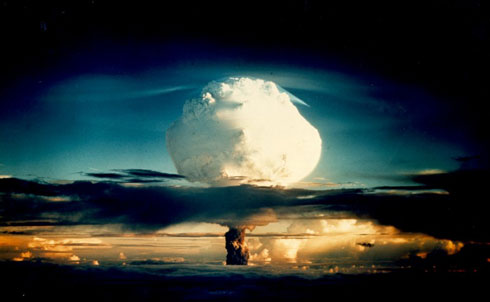
After the detonation of nuclear bombs at the end of World War II, the world moved deeper into the atomic age and the nuclear standoff between the superpowers. An even more apocalyptic bomb was created, the H-bomb, in which US military planners invested their most fervent hopes in the theory of deterrence. The problem with this mindset, as The Nation’s editors wrote in 1952, is that “Fear of the destructiveness of modern war can only be a temporary deterrent….since fear rules out security.”
Credit: National Nuclear Security Administration / Nevada Site Office
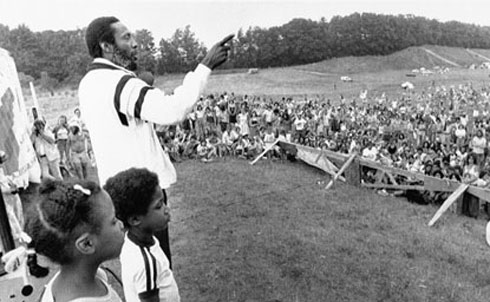
In the decades after nuclear power was first used for war, the new technology began to be harnessed to more peaceful—though no less controversial—ends. In April of 1977, at the height of public opposition to nuclear power, 2,000 concerned citizens descended on a $2 billion, 2,300-megawatt atomic plant construction site in Seabrook, New Hampshire. The occupation, organized by an anti-nuclear coalition known as the Clamshell Alliance, resulted in two weeks of arrests, lawsuits and court dates, which greatly increased the general awareness of the movement against nuclear power. As described in The Nation, the ensuing controversy “focused international attention on the nuclear issue” as it became clear that “thousands of citizens were now willing to face arrest and imprisonment in order to call a halt to atomic reactor construction.”
Credit: AP Images
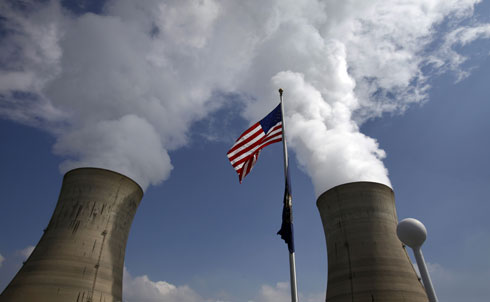
When a meltdown caused large quantities of radioactive gas to leak from a reactor on Pennsylvania’s Three Mile Island in 1979—constituting the worst accident in the history of American nuclear power—plant workers and residents in surrounding areas reacted with astonishing poise and grace. Reporting from the nearby town of Harrisburg, Ira D. Rosen captured the bizarre combination of altruism and gallows humor the disaster prompted in the community. “The dreamlike quality of the fear,” Rosen wrote, “the unseen assassin in the night ready to strike this fragile city down with a cloud of clear vapor, brought the people together for comfort and safety.”
Credit: AP Images
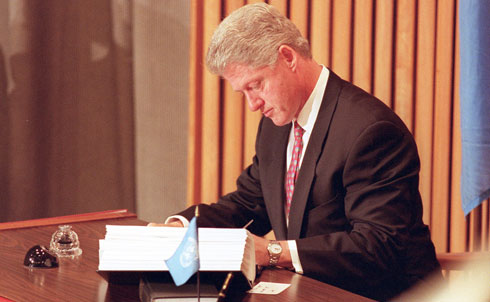
In December of 1997, the Clinton Administration made a quiet but important change to America’s doctrine on nuclear arms strategy, marking the first revision since the thick of Cold War tension in 1981. Instead of charting a course toward eventual nuclear abolition, however, the White House simply removed “from presidential guidance all previous references to being able to wage a nuclear war successfully or to prevail in a nuclear war.”
Alarmed by Clinton’s failure to depart from Reagan-era nuclear thinking, The Nation’s Jonathan Schell issued a strong call for the abolition of nuclear arms. “Now that the war is over, can’t we stand down the arms that were built to fight the war?” Schell asked. “Can’t we and they together not dismantle the system of nuclear terror under which we have all been living? Can’t we, at long last, abolish nuclear weapons?”
Credit: AP Images
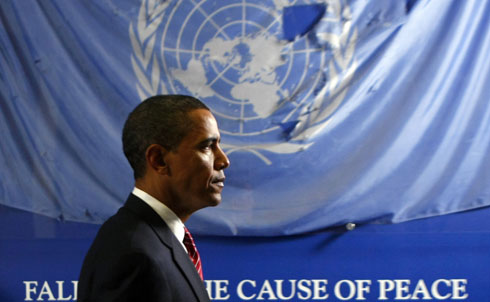
President Obama made history in April of 2009 when he proposed abolishing nuclear arms as not just a legitimate but also a critical goal. “With these words came a change in the global air,” Jonathan Schell wrote, “as if a window had been opened a crack in a dark room that had been sealed shut for decades.”
But the dark room was quickly re-sealed as Obama went on to explain that nuclear disarmament would not “be achieved quickly, perhaps not in my lifetime.” Instead, Obama promised to work toward a “basic bargain” of countries with nuclear weapons moving toward disarmament and countries without nuclear weapons not acquiring them. “Obama says he is prepared to postpone abolition until he has died,” Schell wrote. “He is 47. I wish him long life. Let us free the world of nuclear weapons while he is still among us.”
Credit: Reuters Pictures
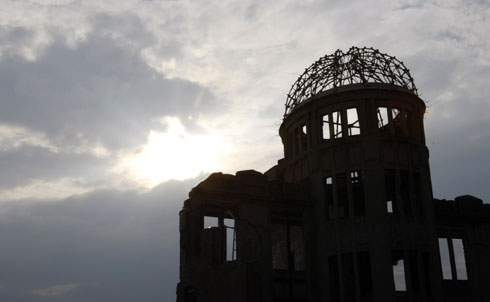
As the Obama administration prepared to complete its Nuclear Posture Review this April, Jonathan Schell wrote that the unique character of our contemporary nuclear dilemmas demand that we confront some tough facts.
In the face of advancing technologies and the attendant accessibility of nuclear weapons, Schell called once again for the abolition of nuclear arms, starting right here in the US. The bottom line, while incredibly difficult for countries possessing nuclear weapons to accept, is simple: “Proliferation [of nuclear weapons] can’t be stopped unless possession is dealt with concurrently… This is a truth, however, that the world’s nine nuclear powers do not like to acknowledge, because it has an implication that they are reluctant to accept, which is that if they want to be safe from nuclear danger they must commit themselves to surrendering their own nuclear arms.”
Credit: Reuters Pictures


